Five Students Earn Mellon Mays Fellowships
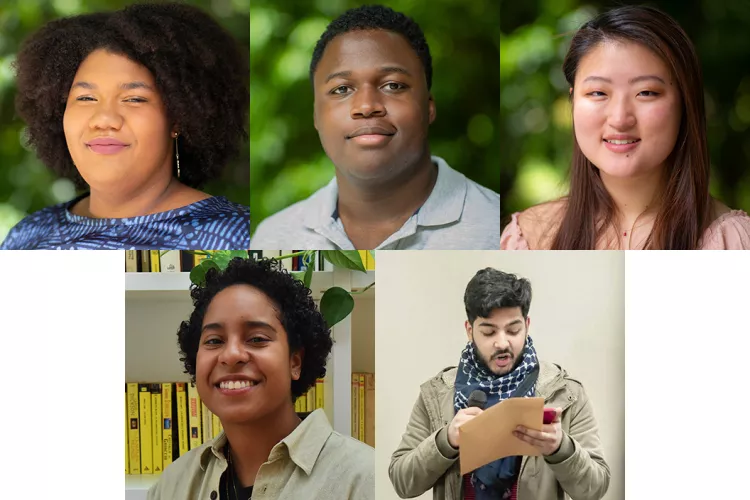
Clockwise from top left: Chioma Anomnachi ’21, Paul Buchanan '21, Naomi Park '21, Hamzah Qureshi '20, and Jessica Hernandez '20.
Five Swarthmore students have been selected for the Mellon Mays Undergraduate Fellowship Program (MMUF), which aims to increase the number of minority students, and others with a demonstrated commitment to eradicating racial disparities, pursuing Ph.D. programs in core fields in the arts and sciences.
“Having myself been a Mellon Mays Undergraduate Fellow as a student at Swarthmore, I am deeply honored to have come full circle and to be back here as a faculty member and as the coordinator of the MMUF Program,” says Assistant Professor of Peace & Conflict Studies Sa’ed Atshan ’06. “It is a privilege to work with and support this remarkable cohort of scholars—they have tremendously bright futures ahead of them.”
The program provides fellows with a faculty mentor; term and summer stipends; access to MMUF programming, including an annual regional conference; and additional benefits if they enter a Ph.D. program within 39 months of graduation. The fellowship program, now in its 30th academic year, was established by the Andrew W. Mellon Foundation and initially involved eight charter members, including Swarthmore.
The 2020 Mellon Mays fellows include:
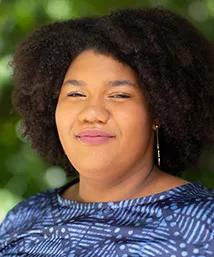
Chioma Anomnachi ’21 (Washington, D.C.). Anomnachi, an English literature major, is interested in researching the ways that racial identities are constructed in Black science fiction and Afrofuturist novels.
“I applied to be a Mellon Mays Undergraduate Fellow because I know that applying to and entering grad programs is difficult and that having a strong network of people to offer support and encouragement is crucial. I am extremely excited and grateful to be joining such a passionate and driven group of scholars of color. I can’t wait to learn from and with them as I continue my academic journey.”
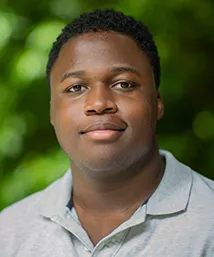
(Tyrone, Ga.). Buchanan, an English literature and peace & conflict studies double major, is interested in the intersections between Black diaspora identity, trauma, and the Black literary tradition. His research is informed by the experiences with racism, abuse, and education inequality he experienced in his hometown.
On campus, he is co-president of the Petey Greene Program, an intern with the Intercultural Center, historian of Students of Caribbean Ancestry, and a member of the executive board of OASiS, which supports the growth of writers of color at Swarthmore. He is also a member of the Swarthmore African American Student Society.
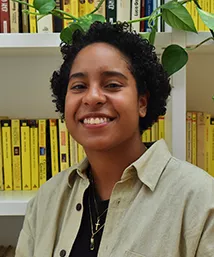
Jessica Hernandez ’20 (Boston, Mass.). Interested in all things food, Hernandez, a peace & conflict studies major, hopes to examine the ways in which community-based agriculture facilitates healing. Her research will focus on alternative food systems and how they promote individual, communal, and environmental health. She aims to better understand how local models of food sovereignty address institutional violence and create strategies of healing.
“Being accepted into the program still feels surreal. It’s such a privilege to have this opportunity, and I’m not sure I’ll ever get over it. I’m especially grateful for the professors who have encouraged me to pursue the fellowship. I’m looking forward to growing as a scholar while I craft efforts to increase minority representation within the realm of academia.”
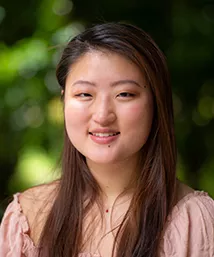
(Queens, N.Y.). Park is a double major in English literature and computer science and hopes to look at the intersection of queer theory, technology, and literature in speculative fiction.
“My project is in English literature but integrates queer theory and technology to further emphasize the discrepancy between the expansiveness of science fiction and its limitations bound by adhering to our current conceptions of identity. I am excited for the community and support I will get to be a part of as I take the next steps towards becoming a scholar.”
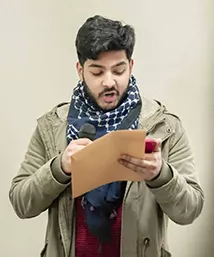
(Carteret, N.J.). Qureshi, a religion and peace & conflict studies double major, is specifically interested in Islamic studies. In the coming year, his thesis research will pertain to the role of Sufism and the spread of Islam across South Asia.
“I am honored to have been accepted as a Mellon Mays Undergraduate Fellow. This opportunity will be critical in my pursuit of a Ph.D. as well as professional development. Having access to the invaluable guidance and resources offered by this fellowship, I feel better prepared as I work toward my career goals of becoming a professor and academic.”
To learn about Swarthmore’s commitment to access and inclusion, visit lifechanging.swarthmore.edu.



